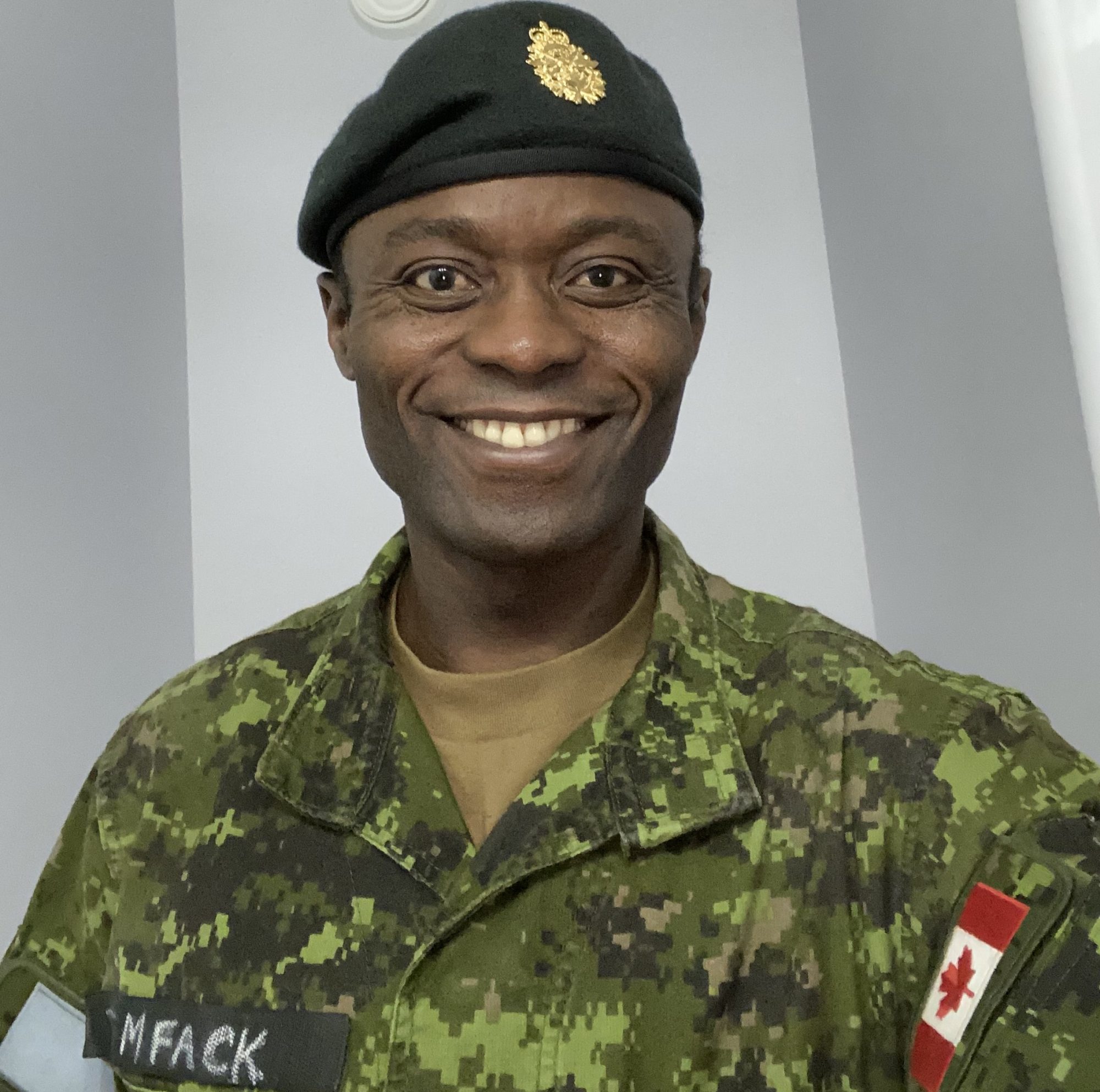When Rodrigue Temfack first came to Canada from Cameroon he liked the idea of joining the army. He went to Canada Place, but he did not have permanent residency at the time, and the army was not recruiting.
It seemed like it wasn’t going to happen. But a few years later, he met a friend, also from Cameroon, who was wearing an army uniform.
“So I asked if he was in the army, he said yes. And I asked if he quit his civilian job, and he said no,” says Temfack.
His friend explained he was a Canadian military reservist — he was a police officer but, if the military required help during a crisis, he could leave his job to help. Reservists can hold both military and civilian positions.
It was the first time Temfack had heard of the opportunity, but it seemed like a good match for his situation. He wanted to be a teacher, but he still had the army in the back of his mind. Being a reservist meant that he could hold a full-time job, provide for his family, and also gain some of the skills that he found really appealing about the army.
He wanted to push himself physically and mentally. After working as a school teacher for a few years, he went through his basic training (Basic Military Qualification) last year from mid-September to early December.
The course was held every week on Fridays, along with every other weekend. He’d arrive after a full day of teaching on Fridays and train at Debney Armoury until Sunday evenings. Some reservists can also choose to do the course in one 30-day block.
Some days there would not be time to eat. He thought he was mentally and physically prepared, but the training was gruelling and challenging in ways he had not expected.
“But, we’re told, as a soldier, we need to be prepared to be exhausted, prepared to go through stress. And how do you get prepared to go through stress if your training is easy and no challenge?” says Temfack.
Temfack uses the word cozy to describe that initial training as compared to his basic military officer training completed in early May of this year where he learned how to give and receive orders, run ranges, shoot and use combat equipment. He took a leave of absence in order to complete the 10-day course in Winnipeg; he was one of 24 out of 48 to complete the course.
